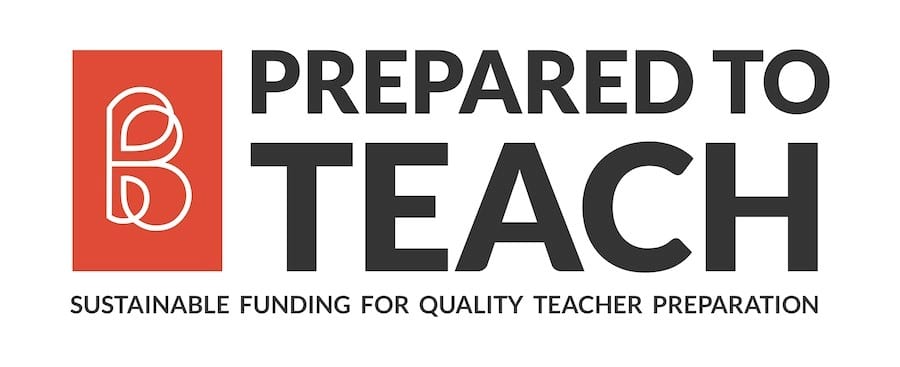23 Sep2020
By Weade James
The Ohio State University’s College of Education and Human Ecology will host a webinar series this fall on anti-racism in educational research for its alumni and the general public. This series, titled “Unapologetic Educational Research: Addressing Anti-Blackness, Racism and White Supremacy,” will examine how to conduct research on race that moves beyond the standardized approach to educational research. Participants will learn strategies to ensure that their research practices are equitable to inform findings that do not perpetuate the marginalization of people of color.
The series will launch on October 1, and feature sessions on a variety of topics, including engaging “diversity” in qualitative research, interrogating whiteness, and conducting research with indigenous methodologies. The webinar will feature guest alumni: D-L Stewart of Colorado State University, Rich Milner of Vanderbilt University, and April Peters-Hawkins of the University of Houston.
Learn more about the events and how to register.
22 Sep2020
By Lynn M. Gangone
 In early spring, when the coronavirus (COVID-19) shut the doors to classrooms, there was an optimistic belief that by fall the obstacles of the pandemic would disappear and in-class instruction would return to normal. However, as states began to lift emergency orders and school districts prepared to reopen schools, it became evident that education leaders would still be grappling with the unpredictable public health crisis this fall.
In early spring, when the coronavirus (COVID-19) shut the doors to classrooms, there was an optimistic belief that by fall the obstacles of the pandemic would disappear and in-class instruction would return to normal. However, as states began to lift emergency orders and school districts prepared to reopen schools, it became evident that education leaders would still be grappling with the unpredictable public health crisis this fall.
With COVID-19 spreading more rapidly in some regions of the United States, each state must assess whether they can safely open schools. Recently, some school districts that deemed it safe to reopen have reverted to remote learning when students and/or teachers have tested positive for the coronavirus. Certainly, navigating the current crisis is complicated, and it is having a profound effect on educator preparation programs (EPPs).
Due to PK-12 school closures in the spring, many teacher candidates were unable to complete their clinical and field experiences in a classroom setting—typically a prerequisite for licensure. Acknowledging that a lack of new teachers entering the field would adversely impact the current teacher shortage crisis, EPPs responded with alternative learning opportunities to ensure that teacher candidates are prepared and competent to enter their own classrooms. As a result, many states have implemented emergency policy changes to licensure, thus enabling recent graduates to teach this fall.
22 Sep2020
By AACTE

Teamwork Team Collaboration Connection Togetherness Unity Concept
Today AACTE released its new report, Teaching in the Time of COVID-19: State Recommendations for Educator Preparation Programs and New Teachers. The 10 recommendations address critical state policy changes necessary to support innovative improvement in education during the global pandemic and beyond. Increased barriers to developing the educator workforce during the health crisis, coupled with the national teacher shortage, create demands for acute collaboration between educator preparation programs (EPPs), state education agencies, and PK-12 schools to reinvent systems for producing high-quality teachers to meet the growing needs of diverse learners.
AACTE reviewed and analyzed COVID-related state guidance to EPPs in pursuit of three goals: (1) to understand what states are doing to help prepare teachers for the classroom during this crisis, (2) to understand any extant trends in state guidance and (3), to identify recommendations for state leaders to enhance the support of new teachers impacted by program and policy disturbances stemming from the coronavirus crisis. From the analysis emerged recommendations that address changes to licensure and certification requirements, clinical experience pathways, and induction supports for novice teachers.
“Navigating the current crisis is complicated, to say the least, and the pandemic’s impact has a profound effect on many, including colleges of education and educator preparation programs,” said Lynn M. Gangone, Ed.D., AACTE president and CEO. “The circumstances of the pandemic open a window to think differently about our collective work. AACTE released this report at its State Leaders Institute today to provide our state chapter leaders with the latest research to inform their collaborations and conversations with state officials, PK-12 partners, and legislators.”
The report’s 10 recommendations are:
- In making licensure and certification waivers for teachers, states should make changes that are directly necessary because of the pandemic temporary, with a timeline for an ending that is clearly delineated, and transparent in that those who are granted certification as a result of waived requirements must be so classified, (e.g., “waiver-certification”).
- States should seek innovative opportunities to address ongoing challenges—such as lack of diversity in the profession and the need to modernize the processes of licensure and certification—as they consider licensure and certification revisions.
- Ensure candidates continue gaining experience teaching in a clinical setting with a mentor teacher, university supervisor, and continuous feedback.
- Encourage flexibility and collaboration between EPPs and school districts that ensure teacher candidates participate in clinical experiences online or in distance settings if PK-12 schools are not physically back in brick and mortar buildings.
- Encourage innovative approaches to clinical experiences including distributed learning models that employ team teaching in PK-12 settings, simulated classroom environments that allow candidates to approximate teaching, and financially supporting candidates through employment with the local school.
- Assess the needs of new teachers impacted by COVID-19 and identify areas for additional support.
- Require an induction action plan for new teachers describing the activities that must be completed or acquired for successful induction.
- Establish a mentorship program to equip new teachers with strategies to deliver high-quality instruction to diverse learners.
- Implement co-teaching for new teachers whose clinical experiences were fully or partially waived and teachers who have not passed exams for licensure and certification due to COVID-19.
- Partner with EPPs to provide professional development to ensure that new teachers possess the knowledge, skills, and dispositions to teach diverse students.
View the full report at AACTE’s website.
21 Sep2020
By Jane E. West

This blog post is written by AACTE consultant Jane West and is intended to provide updated information. The views expressed in this post do not necessarily reflect the views of AACTE.
Congress Looks to Avoid Government Shutdown after Failing to Move COVID Relief Bill
Remember your students who waited until the last minute to turn in their assignments? Well, they are all Members of Congress now! Congress will walk right up to the September 30 deadline before passing a short-term measure that will avoid a government shutdown and keep federal funding flowing. Called a “Continuing Resolution”—or CR—the bill will be a “simple extension” to continue current levels of funding for the time being. The White House, Senate and House leadership agree that this must be passed by the deadline and a shutdown must be avoided.
Two outstanding questions remain. The first is: What will the expiration date be for the CR? The answer is anywhere between mid-December and March.
The second outstanding question is what will and will not be attached to the CR? While all parties are agreeing on a “clean” CR—meaning no “poison pill” amendments—there are always what are known in Washington-speak as “anomalies.” These are friendly changes to law, which are not supposed to be controversial. Of course, ensuring that all parties agree that something is not controversial can be a challenge. Given that passage of a COVID relief bill failed to make progress last week, there will be pressure to add COVID-related provisions to this bill. Most anticipate that there will be no further action on a COVID relief bill until after the election in November. Stay tuned for some action on the CR next week.
21 Sep2020
By Katrina Norfleet
With the growing racial unrest in the country, higher education institutions are uniquely situated to promote anti-racism through education, create safe spaces for marginalized communities, engage in coalition building and ensure accountability in addressing bias, harassment and discrimination complaints. Colleges and universities across the country are responding to the current climate and the persistent issues related to diversity, equity and inclusion by appointing Chief Diversity Officers in record numbers. In an upcoming panel session hosted by Rowan University, Chief Diversity Officers at New Jersey higher education institutions will discuss promising gains in reimagining campuses that center the voices of diverse communities and leading institutional change that results in positive outcomes for students, faculty, and staff.
The session, “Dreams Will Not Be Deferred: A Conversation with Chief Diversity Officers on the Status Of Diversity, Equity And Inclusion In New Jersey Higher Education Institutions,” will take place Friday, September 25, 12:00 – 1:30 p.m. Join the conversation at GO.ROWAN.EDU/DEINJCDO.
21 Sep2020
By Margaret Caspe
 The National Association for Family, School, and Community Engagement (NAFSCE) is delighted to join with AACTE and an array of partners—the Council for the Accreditation of Educator Preparation (CAEP), Mid-Atlantic Equity Consortium (MAEC), and the National Education Association (NEA)—to expand our understanding of how educators are prepared for family engagement. As part of this project, we are inviting department heads and chairs of colleges of teacher education to complete our National Survey of Educator Preparation in Family Engagement by October 31. The goal of the survey is to map how educator preparation programs are preparing education candidates for effective family engagement, identify promising practices, and learn and share innovative ideas.
The National Association for Family, School, and Community Engagement (NAFSCE) is delighted to join with AACTE and an array of partners—the Council for the Accreditation of Educator Preparation (CAEP), Mid-Atlantic Equity Consortium (MAEC), and the National Education Association (NEA)—to expand our understanding of how educators are prepared for family engagement. As part of this project, we are inviting department heads and chairs of colleges of teacher education to complete our National Survey of Educator Preparation in Family Engagement by October 31. The goal of the survey is to map how educator preparation programs are preparing education candidates for effective family engagement, identify promising practices, and learn and share innovative ideas.
Preparing Educators for Family Engagement
Engaging families and communities in learning has always been foundational to student success. Yet, as our nation sets a path forward for education this school year, amidst the COVID-19 pandemic and the reinvigorated movement for racial justice, family and community engagement is more important than ever before. Many educators, however, are not well-prepared to engage families and communities meaningfully.
21 Sep2020
By Elizabeth Langran
 In April, The Society for Information Technology and Teacher Education (SITE) did what many organizations had to do. We transitioned our annual conference to an online format, and we discovered we were still able to have rich conversations with our SITE members around the world. Spurred on by this success, we have been planning a new fall event we are calling the SITE Interactive Online Conference, which will take place October 26-28.
In April, The Society for Information Technology and Teacher Education (SITE) did what many organizations had to do. We transitioned our annual conference to an online format, and we discovered we were still able to have rich conversations with our SITE members around the world. Spurred on by this success, we have been planning a new fall event we are calling the SITE Interactive Online Conference, which will take place October 26-28.
We hope this will be a way of connecting our SITE community in-between the annual spring conferences and allow us to have an event with more practitioner and conversation-oriented sessions. While there will still be opportunities to present research papers as we do at our annual spring research conference, we have added new presentation categories (such as birds of a feather, best practices/demo teaching, and practitioner panels) to provide space for conversations around the important issues facing teacher education today. With a conference rate of $150 and a special rate of $55 for students, we especially hope to see many graduate students and early-career faculty join us.
Proposals are due Friday, September 25 on our website. I hope to see you at SITE Interactive October 26-28!
Elizabeth Langran serves as president of the SITE Executive Board.
21 Sep2020
By Monika Williams Shealey
 The horrific image of George Floyd taking his last breath is seared into our hearts and minds. Since that tragic event, we continue to bear witness to racial violence, police brutality, and incidents of discrimination that are played repeatedly in the news and via social media. The cumulative effect of these stressful reports can be traumatizing, and they are having a profound impact on our educators and students of color.
The horrific image of George Floyd taking his last breath is seared into our hearts and minds. Since that tragic event, we continue to bear witness to racial violence, police brutality, and incidents of discrimination that are played repeatedly in the news and via social media. The cumulative effect of these stressful reports can be traumatizing, and they are having a profound impact on our educators and students of color.
Racial battle fatigue (RBF), a term coined by critical race theorist William Smith, reflects the cumulative results of race-related stress. It emerges not only due to macroaggressions, but also from daily microaggressions, such as dismissive and demeaning comments directed at Black and Brown individuals. Basically, RBF is a wearing down based upon one’s racial identity. Some of the symptoms include depression, anger, frustration, and an overwhelming feeling of helplessness that a person of color is unable to contribute to positive change.
RBF is persistent and pervasive, and it manifests in different ways dependent upon who the person of color is and what he or she has experienced in the past. And while RBF impacts every aspect of our society, in higher education and K-12 environments, we predominantly see it’s imprint through hateful, divisive speech on social media, racial profiling in our society and our schools, and discipline policies that differ for students of color.
21 Sep2020
By Lorrei DiCamillo
 This article is part of a series on clinically rich teacher preparation in New York State, coordinated by Prepared To Teach at Bank Street College. The text is adapted from their latest report, Making Teacher Preparation Policy Work: Lessons From and For New York, and shared by the featured institution.
This article is part of a series on clinically rich teacher preparation in New York State, coordinated by Prepared To Teach at Bank Street College. The text is adapted from their latest report, Making Teacher Preparation Policy Work: Lessons From and For New York, and shared by the featured institution.
In the fall of 2018, Canisius College developed the Western New York Teacher Residency Program (WNYTR). The two-year, graduate level program is designed to prepare skilled teachers who are committed to teaching in Buffalo schools, especially schools with high poverty rates and few resources.
In the planning phase of WNYTR, representatives from five partner schools, seeking a pipeline of well-prepared, diverse teachers, met regularly with College administrators and faculty to discuss the design of the program and align the curriculum to eight Canisius Resident Practices, including, for example, eliciting and interpreting student thinking; supporting students across their social, emotional, and academic needs; and designing/adapting appropriate student lessons and assessments.
After spending a year planning for this program’s launch, there was deep and mutual commitment to the goals and objectives of the program moving into the resident selection process.
21 Sep2020
By Jerrica Thurman
 Are you looking to enhance your professional skills in advocating for national education policies that advance teacher preparation? AACTE is seeking a social media engagement intern to join its marketing and communications team starting this fall semester. If you enjoy keeping up with current trends, storytelling, and gathering data on member engagement and education issues, then consider applying for the remote position.
Are you looking to enhance your professional skills in advocating for national education policies that advance teacher preparation? AACTE is seeking a social media engagement intern to join its marketing and communications team starting this fall semester. If you enjoy keeping up with current trends, storytelling, and gathering data on member engagement and education issues, then consider applying for the remote position.
The ideal applicant for the social media engagement intern position will possess strong knowledge of the digital media landscape, including various social media sites and tools. The successful candidate will be responsible for contributing to website projects, monitoring and engaging with various blogs and social networks, engaging members in social media activities, and participating in online outreach and promotions. Those looking to gain valuable, online media experience with an established organization are encouraged to apply.
18 Sep2020
By Linda Minor

The deadline for the AACTE 2021 Awards is quickly approaching. The final day to submit a nomination is October 9. Submissions can be either be self-nominated or nominated by a third party. To submit a nomination, visit AACTE’s online submission site.
18 Sep2020
By Meghan Grenda
As the fall 2020 semester begins like none other, AACTE would like to remind you of a few new additions to the member resources roster that may be of service to you as the new academic years begins in a COVID-19 world.
- COVID-19 Resource Hub – Here you can connect with peers and access various webinars, tools, and the latest research about online and distance learning.
- COVID-19 Educator Preparation Policy Tracker Map – View the latest policy changes affecting your program and receive guidance on how to make any programmatic changes necessary.
- Virtual Reality Classrooms – Need to provide your candidates with virtual simulations to complete clinical practice requirements? Through your AACTE membership, you receive special rates to Mursion Virtual Reality Classrooms.
Additional resources that you will find useful include the following:
18 Sep2020
Revolutionizing Education
By Christine Gentry and Lorraine Zhong
Christine Gentry
The culminating course of the NYU Teacher Residency focuses on a year-long participatory action research (PAR) journey residents take with a small group of students. PAR is a collaborative, iterative process of inquiry and action in response to an organizational or community problem. Residents and their students work as a team to identify a problem of practice, research that problem of practice, craft action and data collection plans, implement those plans, and then evaluate their impact through analysis of gathered data. In presentations at the end of the course, residents reflect on the entire process and how it helped develop student agency, advocacy, and voice as well as their own leadership. It is the faculty’s hope that during the PAR journey, residents practice radical listening and how to be mindful learners and leaders.
In March 2020, COVID-19 entered the residents’ PAR experience like a wrecking ball. I gathered with the other PAR instructors to decide how we were going to adjust the project for our residents, considering the radical change in access both to physical spaces and to the students in the PAR teams. We ultimately decided to offer the residents two choices: a reflective path, in which they could craft a presentation on their team’s original plan and the progress they were able to make pre-COVID, and a virtual pilot path, in which they could adjust their projects to the virtual space we all suddenly found ourselves in. Understandably, most residents chose to pursue the reflective path, but one resident, Lorraine Zhong, and her team of students chose to continue their project virtually. Her project is a model for how the PAR instructors in the NYU Teacher Residency will be approaching the project this year, with COVID-19’s grip still firmly on our schools. Her journey is a beautiful example of the transformative power of PAR—its ability to strengthen relationships, build student investment, and spark meaningful change—even in the face of this new and terribly difficult time for our schools.
I’ll let her take it from here.
17 Sep2020
By Angeline Dean
This article is a personal reflection of the 2020 Washington Week Holmes Policy Institute by attendee Angeline Dean.

“People, Policy, Politics, and Processes” – Jane West
The knowledge of this framework and its relation to analysis and advocacy spearheaded the Holmes Advanced Policy Course. This framework, along with homework given by AACTE staffers Jane West and Weade James was not only the necessary grounding to an understanding that truly “all politics are local” but also ripe for Luis Maldonado to address the navigating of politics and policies. Immediately following, Lakeisha Steele, professional staffer and policy team leader for Rep. Bobby Scott (D-VA), chair of the House, Education & Labor Committee, “ripped the runway” with her honesty, passion, and commitment to social and transformational change! She reminded us that “we are our ancestors wildest dreams!” Therefore, we like our ancestors and so many who have transitioned this year, must be prepared to live in “good trouble” spaces and we must Persevere.
“If they don’t give you a seat at the table, bring a folding chair” – Shirley Chisolm.
As we segued into the rest of the Holmes Policy Institute, we were gifted with the Power statement of “Miss Unbought and Unbossed” herself, Shirley Chisolm. How befitting as this statement resonated as an overarching theme for such a time as this. AACTE Dean in Residence Leslie Fenwick challenged us to thwart the narratives that brand Black bodies in lies and deficits. She pushed us to exercise our Positionality as spaces of truth, resistance, power, and countered narratives that honor civil rights ancestors in the proper telling of history and data in education. With that, students posed questions that blended and asserted their politics, processes, power, and positionality as people such as: What exactly is the role of a dean in residence and how or does it relate to Holmes students and their needs? What systems are in place to protect (another p word) BIPOC students against whiteness and internalized racism in predominantly white institutions?
17 Sep2020
By Alexis Pritchard
The Louisiana Department of Education, Louisiana Board of Regents and Board of Elementary and Secondary Education (BESE) debuted a new website that will help soon-to-be educators choose the teacher preparation program that fits them best. Prospective educators can now visit LouisianaTeacherPrep.com to explore teacher preparation programs and pathways to become a teacher.
“If we want to provide our children with the education they deserve, we need a highly effective teacher in front of every child,” said State Superintendent of Education Cade Brumley. “Not only does this new tool help prospective teachers find the best pathway for them, but it will recruit educators to our state by showcasing Louisiana’s many quality preparation programs.”
The new website will serve as a one-stop-shop for information on the state’s 29 teacher preparation providers. LouisianaTeacherPrep.com was produced to provide prospective educators with data on Louisiana teacher preparation providers that may be helpful as they select a program suitable to their needs.
Completion of a teacher preparation program signifies that an enrolled teacher candidate has met all state educational and training requirements to be recommended for initial certification. The LDOE is collaborating with BESE and the Board of Regents in this work. BESE has regulatory authority over any training program that results in initial educator certification in Louisiana. The Board of Regents has regulatory authority over public universities.







 In early spring, when the coronavirus (COVID-19) shut the doors to classrooms, there was an optimistic belief that by fall the obstacles of the pandemic would disappear and in-class instruction would return to normal. However, as states began to lift emergency orders and school districts prepared to reopen schools, it became evident that education leaders would still be grappling with the unpredictable public health crisis this fall.
In early spring, when the coronavirus (COVID-19) shut the doors to classrooms, there was an optimistic belief that by fall the obstacles of the pandemic would disappear and in-class instruction would return to normal. However, as states began to lift emergency orders and school districts prepared to reopen schools, it became evident that education leaders would still be grappling with the unpredictable public health crisis this fall.

 The
The  In April, The Society for Information Technology and Teacher Education (SITE) did what many organizations had to do. We transitioned our annual conference to an online format, and we discovered we were still able to have rich conversations with our SITE members around the world. Spurred on by this success, we have been planning a new fall event we are calling the SITE Interactive Online Conference, which will take place October 26-28.
In April, The Society for Information Technology and Teacher Education (SITE) did what many organizations had to do. We transitioned our annual conference to an online format, and we discovered we were still able to have rich conversations with our SITE members around the world. Spurred on by this success, we have been planning a new fall event we are calling the SITE Interactive Online Conference, which will take place October 26-28. The horrific image of George Floyd taking his last breath is seared into our hearts and minds. Since that tragic event, we continue to bear witness to racial violence, police brutality, and incidents of discrimination that are played repeatedly in the news and via social media. The cumulative effect of these stressful reports can be traumatizing, and they are having a profound impact on our educators and students of color.
The horrific image of George Floyd taking his last breath is seared into our hearts and minds. Since that tragic event, we continue to bear witness to racial violence, police brutality, and incidents of discrimination that are played repeatedly in the news and via social media. The cumulative effect of these stressful reports can be traumatizing, and they are having a profound impact on our educators and students of color. This article is part of a series on clinically rich teacher preparation in New York State, coordinated by
This article is part of a series on clinically rich teacher preparation in New York State, coordinated by  Are you looking to enhance your professional skills in advocating for national education policies that advance teacher preparation? AACTE is seeking a social media engagement intern to join its marketing and communications team starting this fall semester. If you enjoy keeping up with current trends, storytelling, and gathering data on member engagement and education issues, then consider applying for the remote position.
Are you looking to enhance your professional skills in advocating for national education policies that advance teacher preparation? AACTE is seeking a social media engagement intern to join its marketing and communications team starting this fall semester. If you enjoy keeping up with current trends, storytelling, and gathering data on member engagement and education issues, then consider applying for the remote position.
